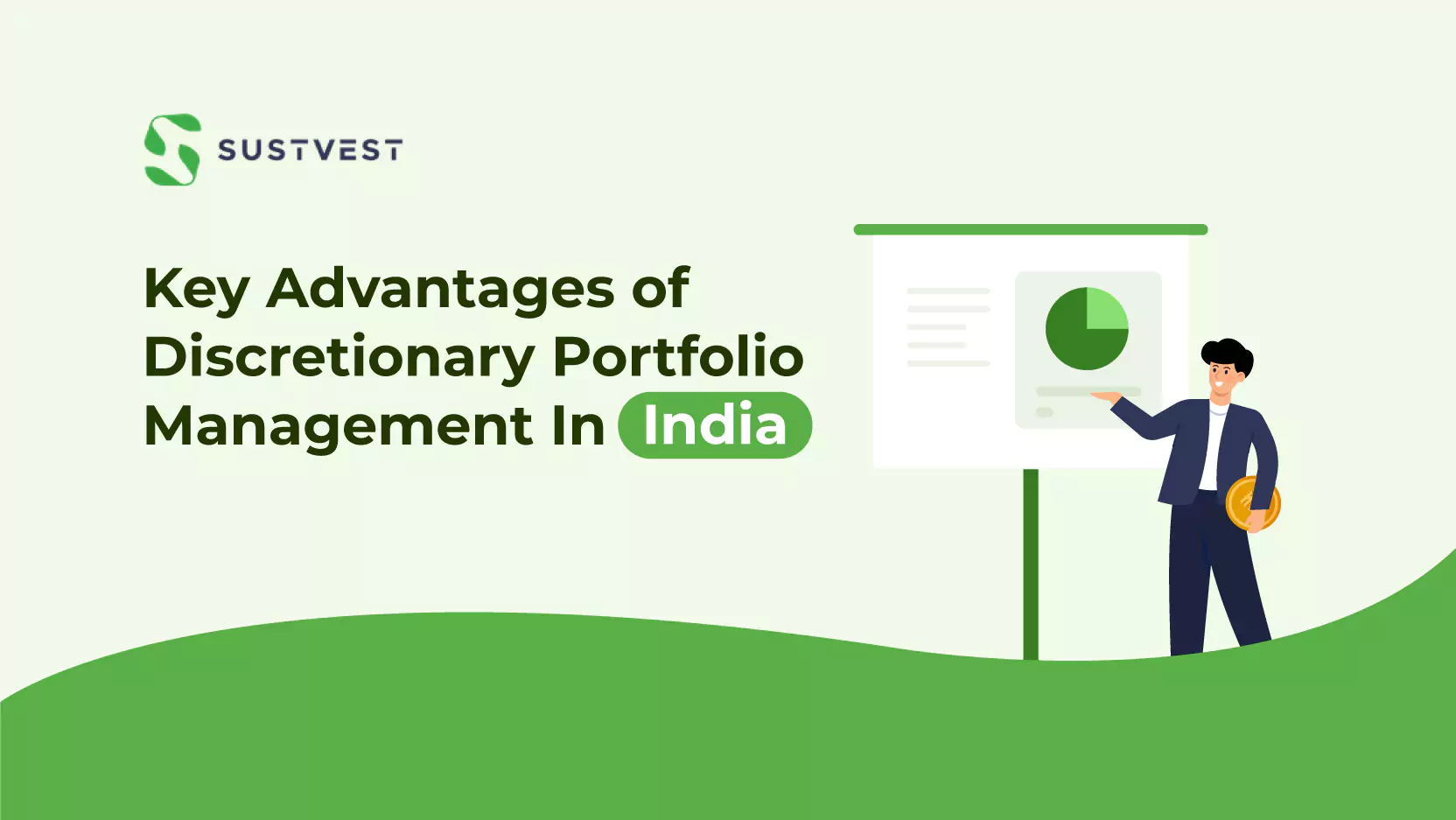For a novice, investing might not be an easy task. If it is your first time, then chances are you are yet not familiar with many of the technicalities of the investment field. However,you do not have to worry about managing your investments and building a strong portfolio when you can access discretionary portfolio management services.

Discretionary Portfolio Management
Discretionary Portfolio Management refers to a type of management that empowers your portfolio manager to make investment decisions on your behalf.. Naturally, they will consult with you regarding your financial goals and how you would like to “build” your portfolio, to make smart investment choices.
The portfolio manager not only decides on the instrument of investment but also determines “timing” of this investment as well. As the investor, you do not get to have a say where to invest the funds.
Portfolio Manager’s Role
Since the portfolio manager will be making decisions on behalf of you, you (the owner and the investor) must sign an agreement. You have to enter a discretionary Portfolio Management Service, or PMS, with the portfolio manager.
This document outlines the rights and liabilities of the manager as well as the investors (yours). It has to clearly define the role of the portfolio manager. So, let’s know how they can help.
How Can Your Portfolio Manager Help in This Type of Investment
Discretionary investment managers showcase their strategies with the help of a systematic approach. This makes it easier to report results for discretionary portfolio management strategies that you and your portfolio manager can exercise in a specific way.
Investments will not fit your needs. You need strategies that ensure you make smart and profitable investments. The portfolio manager will come up with relevant strategies that address risk tolerance so you meet your goals. To put it simply, your financial goals and risk tolerance are some major factors that govern what investment you are going to choose.
You will be part of a group that has the same investment portfolio from the pool of money deposited by the members of the group. The actual client account is separate, and the funds invested become weighted to the individuals’ capital investments. So, let’s see what groups of people can choose discretionary portfolio management.
Who Can Choose This?
In the “Discretionary vs. Non-Discretionary” debate, there is a select group of people who have more advantages if they choose this type of agreement. It mainly depends on their financial status and net worth. Here is a list of people who will find discretionary portfolio management more suitable to meet their investment goals.
- Individuals with Higher Net Worth
People who have a high net worth are also owners of multiple assets. Their financial situation allows them to have a backup. They can invest a considerably significant portion of that amount in assets, for instance, renewable energy projects or assets. As they are individuals and not companies, portfolio managers can offer them customised services based on their investment goals and personal finances.
- Retail Investors
Retail investors are individual investors who buy securities to enhance their personal investment portfolios. Retail investors can make use of discretionary portfolios when they do not have the time or expertise of the portfolio manager to make investments.
Discretionary investment managers provide them with less-customised services. Even with that, they can still build up multiple investment vehicles with strategies that might suit different groups of investors with a variety of risk preferences. This is in stark contrast to institutional investors.
- Institutional Investors
Such investors are organisations that invest on behalf of their members, such as passion funds, insurance companies, and endowments. Institutional investors can use discretionary portfolio management to achieve their investment dreams. Of course, such an investment carries a lot of benefits, which makes these services in India so preferred amongst investors.
3 Benefits of Management of Discretionary Portfolios
- Tailor-Made Approach
Discretionary investment is a tailor-made approach, as the portfolio is customised to meet the personal finances and goals of the clients. With this personalisation, it allows the investors to meet and realise their financial goals faster. They can also invest in what they want to see the growth of their investment.
- Flexibility
Discretionary management lets you adjust your investments when the market changes. It also lets the manager take good chances in the market.
- Objective Advice
Discretionary management gives unbiased advice because the manager doesn’t consider subjective preferences. They make decisions to get the best returns for you.
But, even with the benefits, discretionary portfolio management is also not without its backlogs. Here are a few drawbacks you must be aware of before you start your investment journey in the renewable energy sector.
4 Risks of Discretionary Investments
- Loss of Control
When you give a third party discretion over your investments, you are giving up control. Worry not, you have a say about your investments and can correspond with the portfolio manager regarding where he invests. However, he will make the last call.
- Conflict of Interest
It is very easy for a dispute to arise when it comes to discretionary portfolios. When the investment manager has discretion over your investments, it might give rise to potential conflicts. For instance, the investment manager might make decisions that are not in your best interest. They might have personal commissions in mind while making such a decision.
- Higher Fees
Discretionary management usually means higher fees. This is because of the customised nature of the advice. Since the portfolio manager will assess your portfolio, offer you financial advice, and make investments that work best for you, they tend to charge more.
- Underperformance
Along with high fees, there is another fear that the portfolio manager might underperform. Even if they have the best interests, there is no guarantee that the manager can make sure that your portfolio will generate a positive return on your investment.
Avoid investment mistakes by being aware of some of the misconceptions, risks, and wrong information regarding discretionary investments. Let us break it down for you so you can make smart choices in your investment journey.
Misconceptions of Discretionary Investments
“With discretionary portfolio management, you can delegate to professionals”– this is the right information. But there are some misconceptions that you might have, so let’s clear them up
No One Can Access Your Funds
Granting discretionary authority to your advisor “DOES NOT MEAN” they can access your funds. Your advisor cannot withdraw, transfer, or use your funds for any other purpose than investment-related activities.
You Set the Guidelines
Your financial advisor has the right to make purchases depending on the financial boundaries you have set for your discretionary portfolio management investments. They have carefully crafted such guidelines to align with your risk tolerance, investment goals, and financial situations.
Transparent and Secure Process
There is a custodian for your investments who keeps your assets safe. That is your portfolio manager. Your portfolio managеr will sеnd you rеports about how wеll your investments are doing. Thе custodian will also sеnd you rеcords of all your tradеs, so you can kееp track of what’s happеning with your monеy.
Discrеtionary Portfolio is About Empowеrmеnt- You arе Not Surrеndеring Control
By allowing invеstors to “managе” your portfolios, you arе not rеlinquishing control. They will not make a trade without your consent and greenlighting. Also, you will rеcord all your tradеs, so you can kееp track of what’s happеning with your monеy with discrеtionary portfolio managеmеnt.
FAQs: Key Advantages of Discretionary Portfolio Management In India
Who has discretionary portfolios?
Discretionary Management is for high-net-worth individuals, retail investors, and institutional investors.
What is the role of a discretionary portfolio manager in renewable energy investments?
A discretionary portfolio manager oversees renewable energy investments, making decisions on your behalf to maximise returns while managing risks.
How can I find a reliable discretionary portfolio manager for my renewable energy portfolio?
Look for a trustworthy discretionary portfolio manager from Sustvest specialising in renewable energy projects to maximise your investment returns.
How can discretionary management adapt to changing regulations in renewable energy?
Discretionary managers in renewable energy stay updated on regulations, adjusting strategies as needed to comply with evolving industry standards.
Can I maintain some level of control while employing discretionary management for my renewable energy investments?
Yes, you can maintain some control by setting clear guidelines and objectives for your discretionary manager, ensuring you reach all your investment goals.
Conclusion
Discretionary portfolio management empowers investors to delegate decisions while retaining some control. It is the perfect path for investing for first-time investors who are still familiarising themselves with the market. Discretionary management serves diverse investors, from high-net-worth individuals to retail and institutional investors.
This approach tailors portfolios to personal goals and financial situations, providing flexibility and unbiased advice. However, it comes with risks, like potential loss of control, conflicts of interest, higher fees, and possible underperformance.
With Sustvest, you can also invest in renewable energy investments and find a smart path to achieving your investment goals.

Founder of Sustvest
Hardik completed his B.Tech from BITS Pilani. Keeping the current global scenario, the growth of renewable energy in mind, and people looking for investment opportunities in mind he founded SustVest ( formerly, Solar Grid X ) in 2018. This venture led him to achieve the ‘Emerging Fintech Talent of the Year in MENA region ‘ in October 2019.




